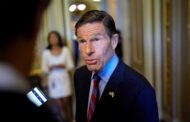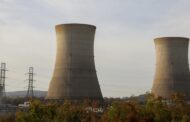Elon Musk’s Boring Company cut a 1.7-mile tunnel beneath the streets of Las Vegas that’s meant to offer a clean way of clearing up traffic in Sin City. Since it opened, the tunnel has drawn criticism for its high construction costs and relatively low passenger numbers compared with traditional mass transit systems like trains and subways. Now, the company behind it has been accused of skirting “building, environmental and labor regulations,” amid a lack of oversight on the project.
Musk’s Boring Company pitched its tunnel program to a handful of cities across America, including in states like California and Illinois. It was Nevada that ultimately took the plunge on the project and, with backing from the private sector through the Las Vegas Convention and Visitors Authority, work began on a 0.8-mile section of tunnel that was completed in 2019. An extension opened in 2020 that brought the total distance you could travel under the Vegas streets up to 1.7 miles.
The Vegas tourism board now wants to further expand the service up to 68 miles of tunnels incorporating more than 100 stations on the network – making it something of a super inefficient subway system. For comparison, the Vegas Loop can handle around 4,000 passengers per hour traveling through the tunnels in Tesla cars, compared with the 10,000 passengers per hour that London’s Victoria Line underground line can handle on an average day.
ADVERTISEMENT
The project might be disappointing for transit fans, but it’s unlikely to face any questions over its future as it’s basically exempt from government oversight. That’s because it’s been approved, funded and operated by a private company, offering a glimpse at the future that company boss Elon Musk wants for the United States.
Because the Vegas tunnel was backed by the private Vegas Tourism board, it’s exempt from federal scrutineers who may criticize its construction and operation, reports ProPublica. Because of this, the Boring Company has taken an “ask forgiveness, not permission” approach to its tunneling, as the site explains:
Meanwhile, Boring has skirted building, environmental and labor regulations, according to records obtained by ProPublica and City Cast Las Vegas under public records laws.
It twice installed tunnels without permits to work on county property. State and local environmental regulators documented it dumping untreated water into storm drains and the sewer system. And, as local politicians were approving an extension of the system, Boring workers were filing complaints with the state Occupational Safety and Health Administration about “ankle-deep” water in the tunnels, muck spills and severe chemical burns. After an investigation, Nevada OSHA in 2023 fined the company more than $112,000. Boring disputed the regulators’ allegations and contested the violations.
Just last year, video footage surfaced online of water spilling from a Boring Company property and while the company said it was “working to correct what is going on,” a similar leek was documented less than three months later. The lack of response from Boring Co led to calls to revoke building permits as “financial penalties wouldn’t put a dent in the company’s bottom line,” ProPublica adds.
Contempt for the environment is one thing, but ProPublica also suggests a lack of care for Boring Company employees and riders. The company reportedly took steps to further reduce oversight by requesting exemption from permits that govern the operation of similar travel and tourism projects, as the site explains:
As Boring begins hauling passengers beyond the convention center in the first-ever test of an underground road network using driver-operated Teslas, it has successfully removed yet another layer of county oversight. Last year, Boring requested that the county no longer require it to hold a special permit that, among other things, mandates operators of private amusement and transportation systems to report serious injuries and fatalities, and grants the county additional authority to inspect and regulate their operations to protect public safety.
The result is that key questions about the operation and maintenance of an unproven transportation system are unanswered. The county declined to respond to detailed questions about its oversight role since the special permit ended. It provided a statement saying that Boring is “responsible for the safe operation of its system and retaining a third-party Nevada registered design professional to conduct annual audits of their operations.” The county can review those audits and inspect the system “as deemed appropriate.”
As a result, experts in Las Vegas have called the endless expansion of the Boring Company tunnel network into question. They argue that the system should be held to the same standards as other mass transit systems in the state, especially after receiving so many construction and labor citations in its short existence.
What’s alarming is that Musk’s efforts to side-skirt regulation and government oversight in Las Vegas offer a taste of what he’s hoping to achieve federally in the coming years. With an impending advisory role to the Trump administration on the cards, ProPublica warns that cuts to regulations and government oversight could mean that the fiasco in Vegas is a sign of things to come for American infrastructure.










